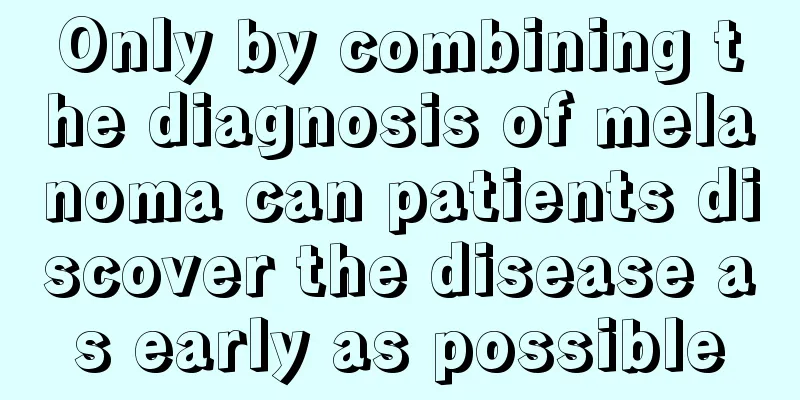Five major symptoms of early colon cancer

|
Early symptoms of colon cancer may include changes in bowel habits, blood in the stool, abdominal pain or bloating, weight loss, and anemia. You should seek medical attention for screening in a timely manner to detect and treat the disease early. In the face of the above symptoms, a scientific lifestyle and regular physical examinations are particularly important for detecting and preventing colon cancer. 1. Changes in bowel habits Sudden changes in bowel habits are typical early signs of colon cancer. For example, frequent diarrhea or constipation, or alternating between the two, and sometimes a feeling of incomplete bowel movements. This is because tumors in the colon can cause intestinal narrowing, affecting the passage of stool. It is recommended that if similar symptoms persist for more than two weeks, see a doctor as soon as possible for a colonoscopy or fecal occult blood test. 2. Blood in the stool Bloody stool is one of the early hallmarks of colon cancer, especially bleeding in the stool without obvious pain, which is often mistaken for hemorrhoids. If the blood is dark red or mixed with mucus, be alert to the potential risk of cancer. It is recommended to perform a rectal digital examination or further imaging examination to determine the source of bloody stool. 3. Abdominal pain or bloating Because the tumor in the colon can cause partial obstruction, patients may experience intermittent cramping, bloating, or abdominal discomfort. These symptoms are usually related to eating. If the pain frequency or severity increases, you should see a doctor in time for abdominal ultrasound or other imaging diagnosis. 4. Weight loss Sudden weight loss without intentional weight loss should be taken seriously, because colon cancer consumes a lot of nutrients, leading to unexplained weight loss. At the same time, weight loss may also be caused by decreased digestive ability. At this time, it is recommended to have a nutritional assessment and colonoscopy to rule out the possibility of cancer. 5. Anemia Tumor bleeding may cause iron deficiency anemia, which is manifested as fatigue, dizziness, pale complexion, and even palpitation and shortness of breath. In particular, if middle-aged and elderly men and postmenopausal women develop anemia, they should be highly alert to the possibility of colorectal tumors. Routine blood analysis and occult blood tests can help identify the cause of anemia. If you or your family members experience one or more of the above symptoms, you should consult the gastroenterology or oncology department of a regular hospital as soon as possible to take effective examination methods, such as colonoscopy, carcinoembryonic antigen CEA test or imaging screening. The risk of colon cancer can also be effectively reduced through measures such as healthy diet, smoking cessation and alcohol restriction, regular bowel movements, and regular screening. The cure rate of colon cancer detected early is as high as over 90%, and scientific prevention and timely treatment are the key. |
<<: What causes skin fibroma and what are the symptoms?
>>: I got endometrial cancer at the age of 20
Recommend
How to identify artificial wood ear?
Some of the fungus sold on the market now may be ...
Is celery an acidic or alkaline food?
There are mainly two types of food in our daily l...
The best hospital for treating colon cancer with traditional Chinese medicine
Colon cancer is a systemic disease with local man...
What is the reason why the sound in the ears becomes smaller?
I believe that many people will find that their h...
The role and classification of CT scan for gallbladder cancer
Gallbladder cancer is one of the most common mali...
What are the best folk remedies for scar removal?
Scars are particularly annoying, especially for p...
How to relieve shoulder pain?
Since most people in real life are busy with work...
What are the dangers of lingual duct cyst
Cysts can develop in any part of the body, and th...
What is the cause of back pain in advanced pancreatic cancer
Pancreatic cancer refers to adenocarcinoma of the...
How to preserve snails without killing them
If the snails are dead, they must not be eaten be...
Can small eyes be enlarged through surgery?
Whether surgery is suitable for small eyes depend...
Causes of lip spots
Having a clean face is the dream of many female f...
Red blood streak removal meeting
Red blood streaks are a very special condition on...
The dangers of having lung cancer in the late stage
The incidence of lung cancer has been increasing ...
Will breast hyperplasia nodules move?
Hyperplastic breast nodules may be somewhat activ...









